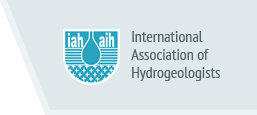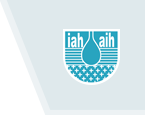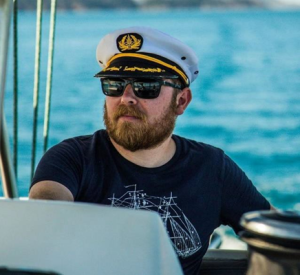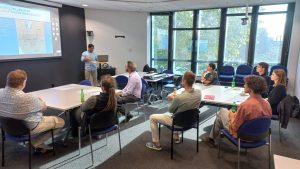2024
20 June 2024 – Christchurch
Mike Thorley from Beca and Alistair Stewart from SRLA (Melbourne) presented “Dive into Melbourne suburban rail trenches: a story of putting the “I”nternational and “A”wesome into IAH through trans-Tasman hydrogeological collaboration” at BECA office, Level 2, ANZ Centre, 267 High St, Christchurch CBD, Ōtautahi / Christchurch.
Overview
Mike Thorley and Alistair Stewart discussed their involvement in a major suburban rail infrastructure project in Melbourne, Australia. The project, which involved the removal of six level crossings by lowering the Frankston line under the local road network into three massive rail trenches, required extensive hydrogeological consultation to prevent groundwater issues near the environmentally sensitive Edithvale-Seaford Wetlands. Their collaborative efforts led to a solution that improved upon the initial designs and met all environmental and regulatory requirements without the need for extensive passive drainage systems.
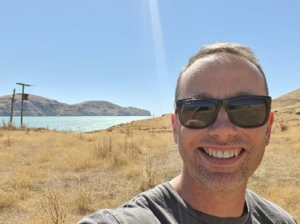 Mike Thorley
Mike Thorley
Mike works at Beca, as a Principal – Hydrogeology, based in Christchurch. He holds a degree in Geological Sciences and a MSc in Geology from the University of Auckland.
Mike has worked in Christchurch for the past 20 years, mainly in consulting across a wide range of projects involving large infrastructure, water supply, groundwater modelling, and supporting resource consent applications.
Alistair Stewart
Alistair is based in Melbourne and is a Principal Hydrogeologist with the Suburban Rail Loop Authority (SRLA). Alistair holds a degree in Environmental Engineering from the Royal Melbourne Institute of Technology (RMIT).
Alistair has over 15 years’ experience mainly in consulting for large linear infrastructure projects both in the Technical Advisor role and within D&C consortiums. Alistair also has extensive mining, oil and gas experience which as seen him work all over Australia.
27 February 2024 – Auckland
José Cerván from Beca Ltd presented “Hydrogeology applied to development. Manual Borehole Drilling as an Affordable Solution for Drinking Water Access” at Beca House in Auckland, where attendees gathered on the evening of February 27th, 2024 for an informative and engaging session.
Overview
The challenge of water access in rural areas of low-income countries is persistent and complex. José Cerván’s presentation offered insight into manual well-drilling methods as a sustainable and cost-effective alternative to traditional drilling. This technique is especially suitable for soft rock environments like unconsolidated sediments, making it a valuable solution in areas with moderate water tables.
For over six years, the collaborative efforts of Geologists Without Borders and the Faculty of Geological Sciences at UCM in Madrid have been directed towards customizing manual drilling systems for the unique geological and climatic conditions of West Africa. José’s firsthand experience from his two-year tenure in rural Mali provided a practical perspective on the project’s implementation and successes.
 José is a hydrogeologist at Beca Ltd, based in Auckland. He holds a degree in Geological Sciences from the Complutense University of Madrid and an MSc in Water Resources and Environment from the University of Malaga.
José is a hydrogeologist at Beca Ltd, based in Auckland. He holds a degree in Geological Sciences from the Complutense University of Madrid and an MSc in Water Resources and Environment from the University of Malaga.
Born and raised in the south of Spain, after graduating in 2014 José has worked in the environmental field, development cooperation and engineering in the USA, Mali, Colombia, and Spain, before moving to New Zealand.



